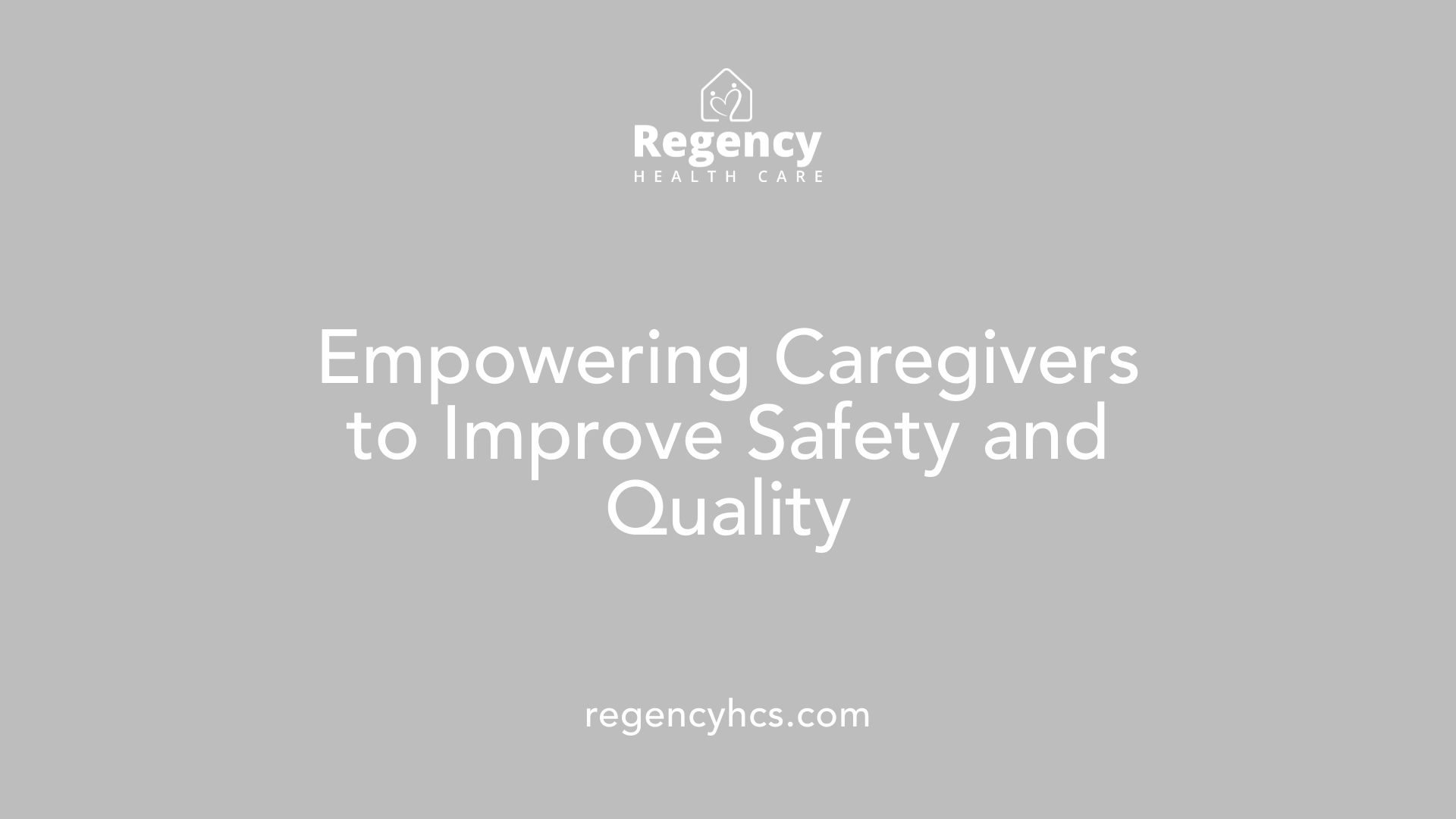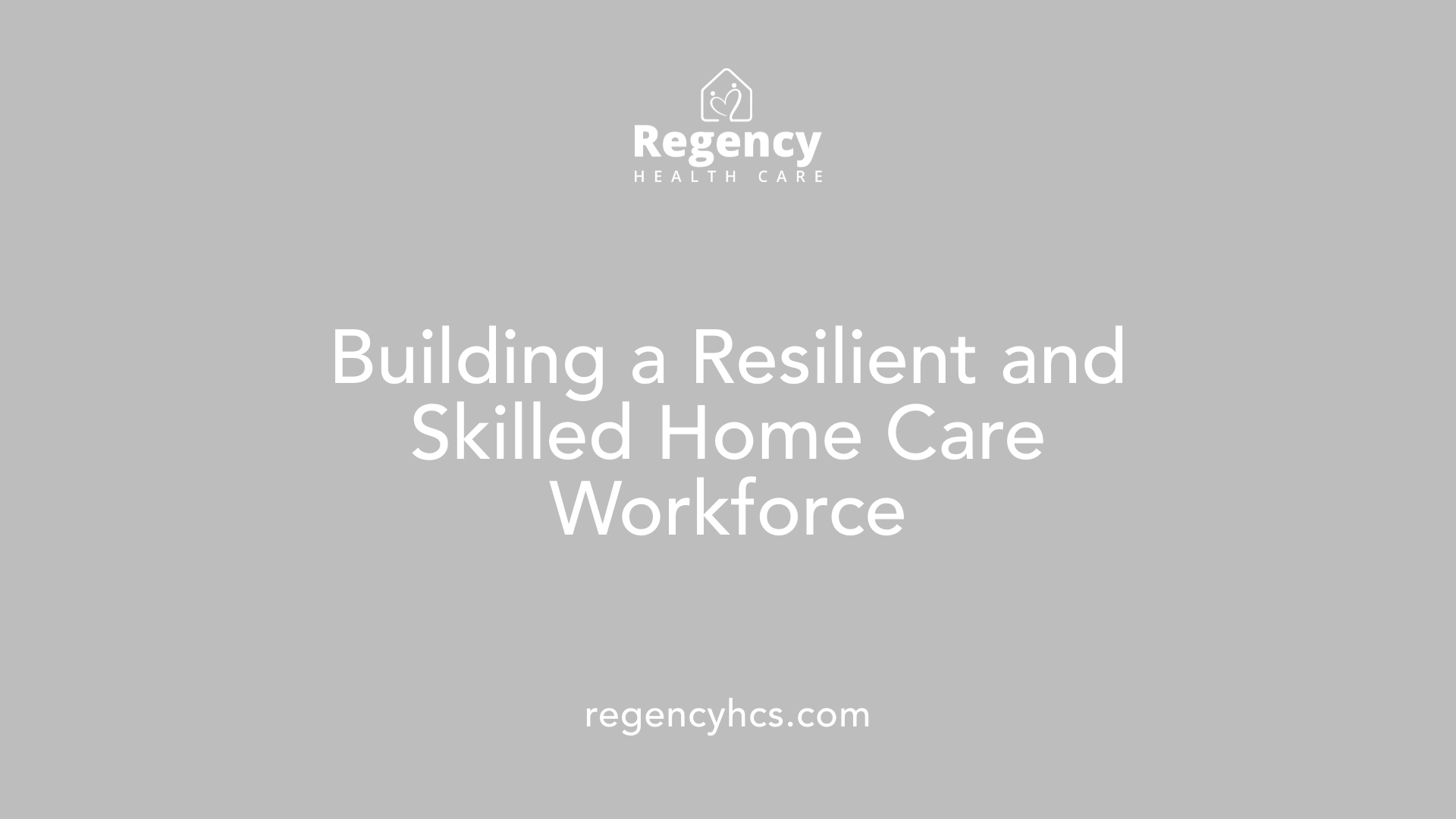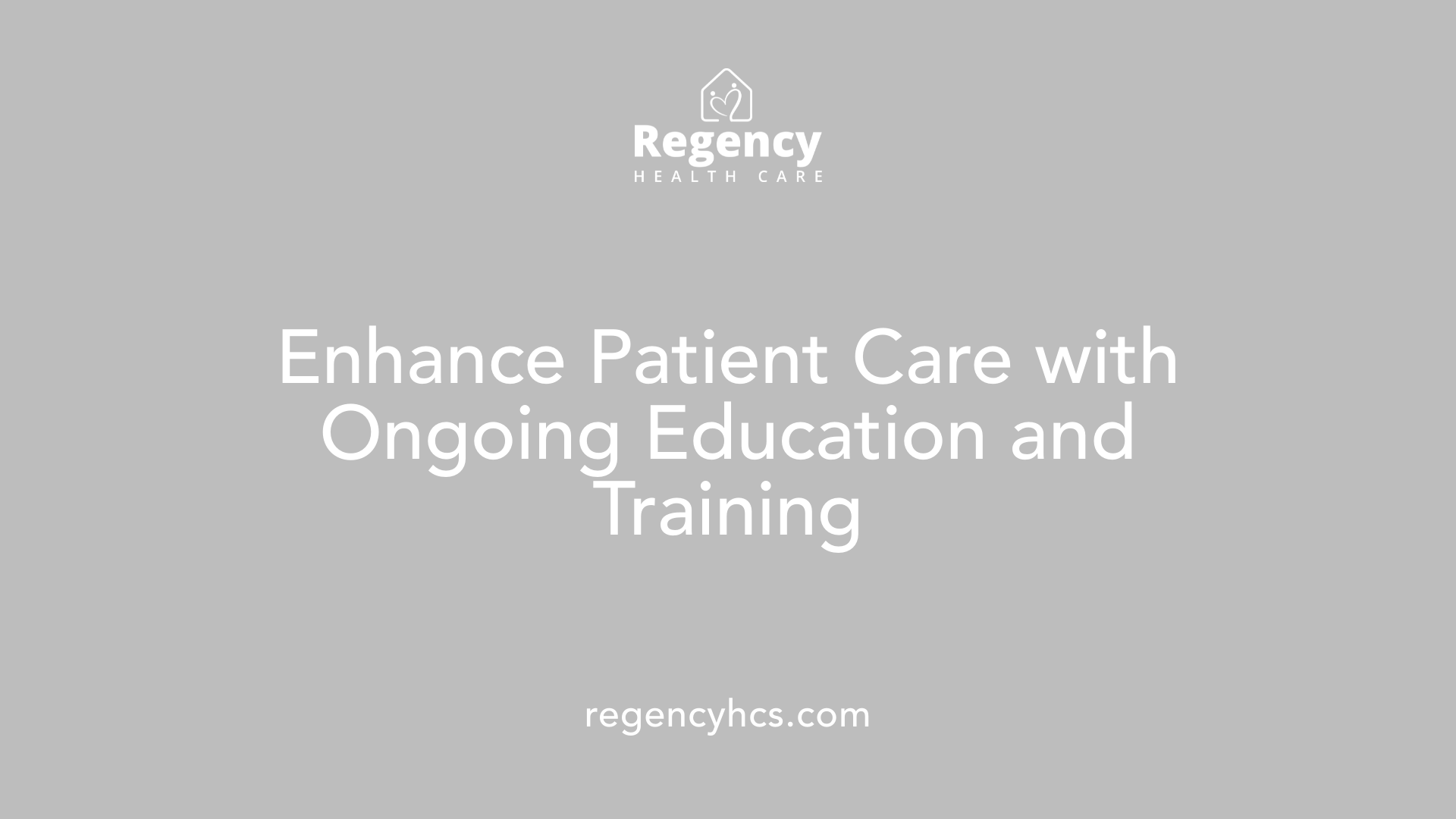Laying the Foundation for Quality Home Health Care
In the evolving landscape of home health care, education and ongoing training stand as critical pillars supporting a competent, motivated, and adaptable workforce. As the demand for community-based and elderly care rises, equipping providers with specialized skills and current knowledge not only enhances the quality of care but also ensures safety, compliance, and improved patient outcomes. Addressing existing gaps and embracing innovative training strategies are vital steps toward transforming home health services into a dynamic, person-centered model of healthcare.
The Impact of Education on Care Quality and Patient Safety

What is the significance of education and training for home health care providers in improving care quality?
Ongoing education and training are crucial for home health care providers. They serve as the foundation for enhancing clinical skills, ensuring adherence to best practices, and increasing patient safety and satisfaction.
Training that is tailored to caregivers' needs prepares them to manage complex health conditions such as dementia and multiple chronic illnesses. This comprehensive approach minimizes errors and promotes a more personalized, person-centered care experience.
Effective methods like simulation exercises, mentorship programs, and online learning platforms are vital. These interactive strategies facilitate skill acquisition and problem-solving in realistic scenarios, helping caregivers feel confident and competent.
Addressing challenges such as staff burnout and low motivation is also part of robust training programs. Supporting staff through continuous education improves job satisfaction and retention, which are essential for sustaining a high-quality workforce.
Furthermore, ongoing professional development regarding quality improvement initiatives, new healthcare technologies, and regulatory requirements keeps caregivers updated. This adaptability ensures the delivery of safe, evidence-based care.
Training outcomes directly influence health results. Well-trained personnel are better equipped to reduce hospital readmissions and improve overall patient health.
In summary, comprehensive, ongoing education enhances caregiver competence, fosters higher standards of care, and ultimately leads to safer, more effective home healthcare services for patients.
Workforce Development: Building a Skilled and Stable Home Care Team

What role does education and training play in workforce development in home health care?
Education and ongoing training are fundamental to developing a competent and reliable home care workforce. They provide caregivers and healthcare professionals with critical clinical and technical skills necessary to deliver high-quality care. These skills include managing complex health conditions, communicating effectively with patients and families, and adhering to safety protocols.
Engaging training programs that incorporate interactive methods—such as simulation exercises, mentorship opportunities, and online learning platforms—allow care providers to stay updated on the latest medical advances, technology, and regulations. This not only improves patient outcomes but also enhances job satisfaction for caregivers.
Participation in continuing education correlates with higher organizational commitment and a stronger intent to remain in the workforce, which reduces staff turnover. However, geographic disparities and structural barriers like low wages and lack of standardized credentials can limit access to quality training, risking workforce instability.
Strengthening the infrastructure of training, implementing supportive policies, and creating clear career pathways are vital steps. Supported by workforce development initiatives, these measures help build a home care team that is skilled, motivated, and stable—capable of meeting the rising demand for community-based and home-based medical services.
The Power of Continuous Education on Patient Outcomes

How does ongoing training affect patient outcomes in home health care?
Continuous training is vital for home health care providers. It ensures caregivers stay current with the latest medical advances, technology, and regulatory standards. When staff are well-trained, they are better equipped to handle complex health conditions, emergencies, and daily care tasks.
One significant impact of ongoing training is reducing hospital readmission rates. Well-trained caregivers can detect early warning signs of deterioration, manage medication properly, and implement safety measures like fall prevention. This proactive approach keeps patients healthier at home and lessens the need for hospital visits.
Training also improves the overall quality of care. Caregivers who regularly update their skills deliver more effective, safe, and personalized care, leading to higher patient satisfaction. This consistency builds trust and encourages patients to engage actively in their care plans.
Another advantage is workforce stability. Ongoing education increases job satisfaction and confidence among caregivers, decreasing staff turnover. A stable, skilled team provides continuous, high-quality support to patients, promoting better health outcomes.
Various programs play a role in boosting caregiver expertise. These include practical courses in emergency response like CPR, managing chronic conditions such as diabetes or cardiovascular issues, and using new healthcare technologies. Simulation training, online modules, and mentorship are effective methods that enhance learning.
In essence, investing in ongoing training creates a knowledgeable workforce capable of addressing the diverse needs of home health patients. This results in safer care, fewer hospitalizations, and improved health and well-being for those receiving care at home.
Training Resources and Strategies for Home Health Providers

What are the available training options and resources for home health care professionals?
Home health care professionals today have a diverse array of options to build their skills, stay compliant with regulations, and provide high-quality care. These resources include in-person workshops, online courses, and certification programs tailored to various caregiving needs.
Organizations like Relias offer multilingual online courses covering critical topics such as activities of daily living, infection prevention, and specialized patient care. These platforms often feature interactive modules and assessments that help ensure comprehension and skill mastery. Industry associations, such as the Alliance for Care at Home, conduct webinars, instructor-led training, and on-demand courses. These programs address leadership, clinical best practices, and new care models.
Regulatory agencies like the Centers for Medicare & Medicaid Services (CMS) supply training materials on data collection, assessment procedures, and quality reporting, vital for regulatory compliance. The National Respite Care Provider Training offers competency-based modules in English and Spanish, focusing on the needs of respite caregivers caring for individuals with disabilities or aging populations.
Many training programs include tools to track progress, document certification statuses, and measure impacts on patient care. Utilizing these resources helps care agencies enhance staff knowledge, reduce mistakes, and foster continuous professional development.
| Resource Type | Offered By | Focus Areas | Accessibility & Tracking Features |
|---|---|---|---|
| Online Courses | Relias, CMS, others | Infection control, elderly care, chronic conditions | Progress dashboards, compliance reports |
| Certification Programs | HHA, CHCE, others | Caregiver skills, administrative knowledge | Certification tracking, renewal reminders |
| Seminars & Webinars | Industry groups, universities | Leadership, new practices | Attendance records, feedback assessments |
| Community-based Training | Local health departments | Elder care, emergency response | Certification records, competency assessments |
Through these varied training avenues, home health providers can continually advance their competencies and improve patient outcomes, ensuring regulatory adherence and excellence in care delivery.
Addressing Training Challenges and Promoting Continuous Improvement

What are the challenges and gaps in current education and training practices in home health care?
Home health care providers often face various hurdles that limit the effectiveness of their training programs. One major issue is the lack of standardized training that is tailored to the diverse needs of patients and caregivers. Without consistent guidelines, it becomes difficult for staff to develop a cohesive skill set that addresses complex health conditions.
Workforce turnover is another significant challenge. High staff attrition rates mean that ongoing training is necessary to maintain a knowledgeable and competent workforce. However, low compensation and organizational barriers such as insufficient management support and inadequate training resources hinder the implementation of effective educational programs.
Training for complex health issues remains an area with notable gaps. Caregivers often lack formal instruction on managing coexisting conditions like dementia and cancer or handling medical devices for older adults with cognitive and sensory impairments. This results in suboptimal care and increased risks for patients.
In addition, home health nurses work in environments with safety concerns, inconsistent equipment, and varying patient conditions. This environment requires broad clinical knowledge, strong empathy, and resilience—skills that are not always covered sufficiently in current training modules.
Environmental hazards, safety issues, and communication difficulties with patients and their families pose further barriers. Limited caregiver support and scarce resources compound these challenges, making effective training even more critical.
To improve training outcomes, organizations need to develop accessible, context-specific educational programs. These programs should consider the unique circumstances of home health environments, promote ongoing professional development, and foster organizational support. Investing in comprehensive, flexible training approaches will help close current gaps, improve care quality, and ensure that staff are equipped to handle the evolving needs of home health patients.
Empowering Providers for Better Care
Investing in comprehensive and ongoing education, supported by innovative training strategies and resources, is fundamental to elevating home health care. By addressing current gaps and fostering a culture of continuous learning, healthcare organizations can develop a resilient, skilled workforce capable of delivering high-quality, safe, and person-centered care. Such efforts will not only improve patient outcomes and satisfaction but also ensure that providers remain motivated and well-equipped to meet the challenges of a rapidly evolving healthcare landscape.
References
- Role of Training in Home Health Care | Bell Tower HHC
- Education & Training | Health Policy Institute | University of Pittsburgh
- The importance of proper training in home care - AlayaCare
- The Importance of Ongoing Training and Education in In-Home Care
- The Importance of Continued Caregiver Education - Showd.me
- Specific Training Is Crucial To Prepare The Next Generation For ...
- Why Continuous Staff Training is Essential for Home Health Care ...
- The Impact of Caregiver Training on Patient Outcomes in Home ...
- Current Practices of Family Caregiver Training during Home Health ...
- Role of Training in Home Health Care | Bell Tower HHC

The Role of Technology in Modern Patient Care Management
August 6, 2025
Transforming Healthcare Through Innovation and Technology

The Importance of Regular Physical Assessments in Home Health Plans
August 6, 2025
Enhancing Patient Safety and Quality in Home Care

Medicaid Planning for Families: What You Need to Know
August 6, 2025
Essential Strategies for Protecting Assets and Securing Long-Term Care

How to Protect Your Assets While Qualifying for Medicaid
August 6, 2025
Smart Strategies for Safeguarding Wealth in Medicaid Planning

The Role of Cognitive Therapy in TBI Recovery
August 6, 2025
Unlocking Recovery: How Cognitive Therapy Transforms Outcomes in Traumatic Brain Injury

The Long-Term Effects of TBI and How Home Care Helps
August 6, 2025
Understanding the Lasting Impact of Traumatic Brain Injury and the Role of Home Care




